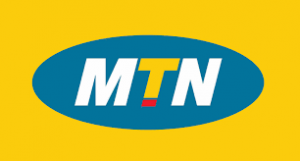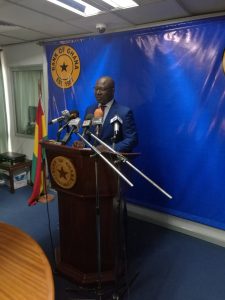 COST of doing business in Ghana is expected to go up following the Monetary Policy Committee (MPC) of the Bank of Ghana (BoG) decision to increased its policy rate from 19% to 21%.
COST of doing business in Ghana is expected to go up following the Monetary Policy Committee (MPC) of the Bank of Ghana (BoG) decision to increased its policy rate from 19% to 21%.
The Policy rate is the rate at which commercial banks will borrow from the central bank. It also has effect on interest rates. With increase in the policy rate, all the commercial banks in the country are expected to increase their base rates within the shortest possible time.
Among the copious reasons cited by the Governor of the Bank of Ghana, Dr Henry Kofi Wampah for increasing the rate included: weak global economic outlook in some advanced economies, which continue to weigh down on commodity prices, especially gold and crude oil; a rebound in business and consumer confidence on domestic economy; and fiscal pressures which continue to pose challenges to the local economy.
Growth and Inflation
He told journalists in Accra today: “Recent official data on the pace of economic activity in the second quarter confirmed the assessment based on the Composite Index Economic Activity (CIEA) in the last MPC round.
The Ghana Statistical Service (GSS) reported a quarter-on-quarter GDP growth of 3.3 percent in the second quarter of 2014 while year-on-year growth in the second quarter of 2014 was 5.3 percent, driven mainly by the agricultural sector. The GSS projects an annual growth rate of 6.9 percent for 2014”.
An update of the Bank of Ghana’s Composite Index of Economic Activity (CIEA) for 2014 third quarter suggests a positive year-on-year growth of 7.8 percent at the end of September, 2014, compared with 9.6 percent in the corresponding period last year.
The seasonally adjusted RCIEA registered a growth of 5.4 percent at the end of September 2014, compared with a growth of 8.3 percent for the corresponding period in 2013, according to Dr Wampah
He explained: “The Bank’s survey of consumer sentiments in October 2014 showed that consumers were upbeat about the general economic conditions. This was reflected in their responses to questions relating to current macro-economic situation, welfare issues as well as overall expectations (employment and economic activity) about key economic indicators.”
The overall index improved to 85.6 from 77.5 recorded in August 2014. Similarly, business confidence rebounded in the third quarter as suggested by the Bank of Ghana’s survey of Business Confidence. The index improved to 88.7 from 78.6 in the second quarter.
Prices on the other hand continued to rise since the last meeting as headline inflation reached 16.5 percent. This was on the backdrop of the pass-through of the depreciation of the cedi which pushed up prices of fuel, transport and imported food items. Food inflation was 5.8 percent up from the 5.1 percent recorded in August 2014 while non-food inflation was barely unchanged at 24.1 percent compared to 24.0 percent recorded in August.
Monetary Developments
Broad money (M2+) grew by 33.6 percent year-on-year at end September 2014 to GH¢32.1 billion, compared with a growth of 17.6 percent in the corresponding period last year.
This was driven largely by developments in the net domestic assets of the banking sector, on account of strong growth in domestic credit particularly to the energy sector. Reserve money also expanded by 46.8 percent in October 2014 compared to 18.7 percent in the corresponding period last year, largely driven by significant increases in net foreign assets of the central bank.
African Eye News.com




